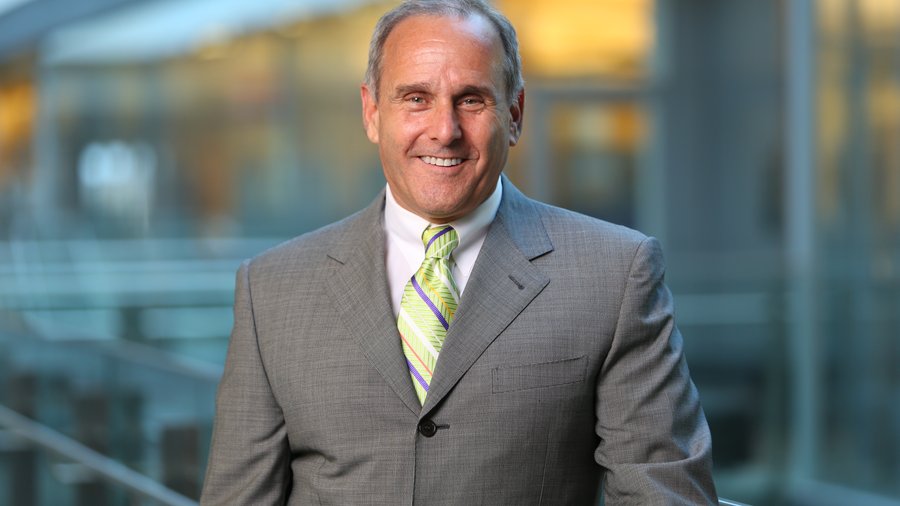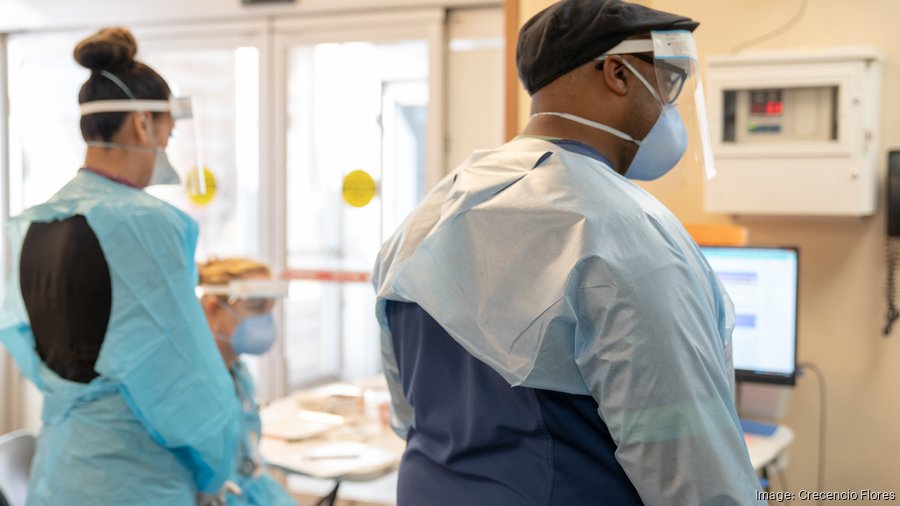As Arizona remains a hot spot for Covid-19, Arizona scientists expect the virus to peak at the end of January or early February.
Dr. Joshua LaBaer, director of the Biodesign Institute at Arizona State University, said in a media briefing Wednesday that his models project the peak of the Covid-19 surge to happen at the end of January or early February.
"Stay in as much as possible," he advises. "This is not the time to be out and about when we are the hot spot of the world right now."

What's most concerning to LaBaer is the number of excess deaths as a result of Covid-19.
Arizona has 575,680 Covid-19 cases and 9,444 deaths, with 7,206 new cases and 127 deaths reported today, according to the Arizona Department of Health Services.
"We are not doing well here," LaBaer said, pointing to 61% of intensive care unit beds being used by Covid-19 patients in Arizona's hospitals.
"That is not sustainable," he said.
Dr. Michael White, chief clinical officer for Valleywise Health, said his hospital is taking care of 86 Covid-19 patients, with 20 of those in the ICU as of this morning.
"Our continued biggest challenge remains having qualified staffing to continue to increase our capacity to take patients," he said.
Many patients are being held in the emergency department as they wait for beds to become available, he said.
White said he's never seen so many critically ill patients in the hospital at the same time in all his years in health care.
Phoenix-based Banner Health, the state's largest health system, has seen a decline in Covid-19 cases in most of its other five markets — except Arizona.
This week Arizona surpassed all other states with the highest rate of new Covid-19 infections, said Dr. Marjorie Bessel, chief clinical officer at Banner Health.
"Johns Hopkins University data shows that Arizona has the highest number of Covid-19 cases per day in the world when normalized by population," she said. "Our Covid-19 seven-day average positivity rate is now 25%. That means one in four Arizonans who are tested for the virus are confirmed positive for Covid-19."
Hospitals are now starting to see the effects of Christmas holiday gatherings and will expect to see the New Year's holiday case spike in another week or two.
"I don't need to tell you this is beyond concerning," Bessel said. "Hospitals in the state of Arizona are stretched very thin right now despite a considerable amount of preparation and work to increase capacity."
Banner hospitals continue to care for roughly half of all Covid-19 patients in Arizona, she said.
"Our occupancy remains above 100% of our licensed bed capacity, and we continue to add beds wherever we can," she said. "Currently, our ICU occupancy is 70% higher than it was at the same time last year."
Both Bessel and White called for more mitigation, more enforcement and more personal commitment from Arizonans to reduce the spread of the virus.
"This means implementing additional measures like a statewide mask mandate, a curfew, stopping indoor dining, canceling large gatherings like the Phoenix Open and adhering to a bi-directional roadmap for the opening and closing of businesses based on science and data," she said. "It also means that those rules must be enforced."
Meanwhile, Houston-based Maddox Defense won a new contract from the state of Arizona to supply personal protection equipment in the fight against Covid-19.
This also comes at a time when Arizona Gov. Doug Ducey kicked in $2 million to help local restaurants and other dining establishments expand outdoor dining, protect patrons and staff in an effort to limit the spread of the virus.




